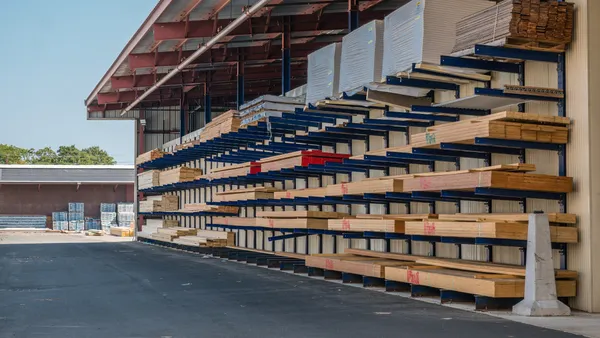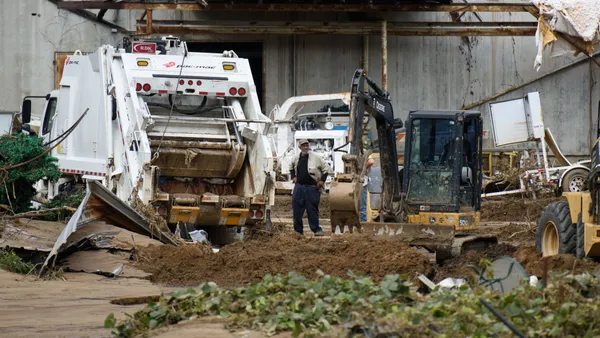Every phase of the building lifecycle requires pristine accuracy – from planning to building – and the whole process begins with making sure your budget estimate is accurate. But inaccurate cost data inevitably leads to inaccurate estimates, inaccurate estimates lead to cost overruns and cost overruns can shut down a project altogether. I’m sure you’ve heard about at least one project that was halted or possibly never finished because it was started with a skewed budget.
It’s impossible for the cost data of yesterday to give a reliable vantage point for tomorrow’s construction project. In the average year, over 90% of construction costs change. Some of those changes are incremental, but others are significant enough to wreck a budget. From 2019 to 2020, 34% of construction material costs changed by 5% or more. Multiply that 5% by the number of times you need a certain material – whether it’s a steel beam or a wood plank – and the difference adds up quickly. Estimates are like blueprints in this way: Even small variances in measurements can create major gaps in the end product. And those gaps don’t just disappear. Be it the contractor or the client, someone will pay extra at the expense of an inaccurate estimate.
While periods of two, three or even five years can seem short, the factors that influence costs can change exponentially over that time. Just think of how many new technologies you learned about this year or the number of geopolitical events you read about in the news that impacted the construction industry. The reality is that material and labor markets are always shifting, and none of the materials you use for construction projects exist in a vacuum. The prices of raw materials, supply and demand, shipping fees, market maturity, time of year, energy rates and industry trends all influence construction prices. So while relying on past experiences is important for growing in your role, relying on past construction costs is unsustainable.
That sentiment is one that the architects and engineers at CTA, a national A/E firm founded in 1938, take to heart. CTA’s Senior Architect, John Bolton, has 30 years’ experience in the A/E field and knows his way around a construction estimate. John uses his expertise to create the most cost-effective designs for clients without sacrificing an ounce of quality. To provide the foundation for value engineering, CTA uses RSMeans data from Gordian. The itemized material, labor, equipment and productivity costs allow CTA to demonstrate the financial impact of each choice.
John described CTA’s choice of RSMeans data, saying, “The level of detail we are able generate shows CTA understands the details of the designs. Our estimates indicate to the client a real possibility of potential cost impacts versus a lump sum number.” CTA has seen the tangible benefits of using RSMeans data to power estimates. CTA estimates generally fall within three to eight percent of contractor estimates during Design-Build projects.
As John pointed out, Gordian’s RSMeans data is an ideal choice for architects and engineers looking for a high level of detail in their estimates. It gives users access to over 92,000+ material, labor and equipment unit line items. Gordian’s internal team of data scientists and engineers spend an excess of 22,000 hours researching and validating costs to ensure their accuracy. Each line item is updated at least annually, with commonly used tasks and materials updated on a quarterly basis. Line items are also customizable to nearly 1,000 locations across the United States, allowing you to account for labor availability and material prices in your local market.
One of the oldest problems in construction is using current costs to budget for future builds. Because the projects you’re estimating won’t be built today, RSMeans data also offers the option to use predictive line item costs. Any line item in the database can be projected up to three years in the future within a 3% margin of their actual future cost, so you can keep the guesswork to a minimum in your estimates.
The end result is peace of mind for you and your clients. You won’t be caught off guard by cost changes or have estimates derailed by outdated data, and your clients won’t struggle through project overruns. Gordian’s data expertise helps you cement your own reputation as an industry expert and reliable estimate builder.










